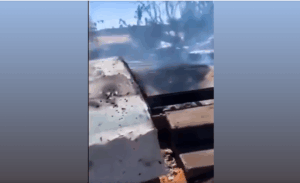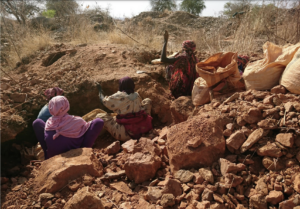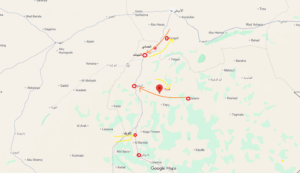Sudan: Power still off for Blue Nile violence victims
Locals in Blue Nile state as well as the recently displaced who have fled from the intercommunal violence in the area, have suffered a slew of hardships whilst living in the displacement camps. Multiple sources have stated that the area continues to be in darkness due to an explosion which occurred in the state’s power plant.
 Displaced people in Blue Nile state after the tribal violence (Photo: Social Media)
Displaced people in Blue Nile state after the tribal violence (Photo: Social Media)
Locals in Blue Nile state as well as the recently displaced who have fled from the intercommunal violence in the area, have suffered a slew of hardships whilst living in the displacement camps. Multiple sources have stated that the area continues to be in darkness due to an explosion which occurred in the state’s power plant.
The local sources stated that “the area is now in its sixth consecutive day of having no power” which has caused “disrupted people’s access to clean drinking water, forcing the people to resort to get their drinking water directly from the Nile”.
Some sources reported to Radio Dabanga that the price of a clean barrel of water had reached SDG7000. The power outage has also reportedly caused a surge in local fuel prices, meaning those with access to a generator are having to pay SDG5,000 per gallon of gasoline, instead of the previous price of SDG3,800.
In addition to the power outage, many governmental offices in the state have been suspended. A local government employee told Radio Dabanga that colleagues in his department went to work and “sat around without doing anything”.
Activists have also warned of the impending health crisis displaced people in Ed Damazin will face, if humanitarian organisations don’t intervene soon. They stated that the “heavy spread of flies and mosquitoes pose and imminent threat to the recently displaced”, and humanitarian actors should expedite their efforts in providing “food, blankets, and mosquito nets”.
Violent intercommunal clashes in Blue Nile state
At least 65 people have died and an additional 150 have been wounded in the intercommunal clashes which began a week ago in Sudan’s Blue Nile state. Forces were deployed in the state’s towns of Ed Damazin and El Roseires, in an effort to impose a curfew and quell the violence between the opposing Hausa and Berta ethnic groups.
According to the state’s Minister of Health, Jamal Nasir, of the approximately 65 dead, most of whom “were young men who were shot or stabbed”.
The minister called on authorities in Khartoum to “airlift 15 seriously injured”, owing to the province’s poor standard of medical services. Hospitals in the region have also put out urgent calls for blood donations. The El Roseires Hospital facility had apparently “run out of first aid equipment” and support was crucially needed due to the rising number of injuries, according to AFP reports.
The trouble between Berta and Hausa tribemen was triggered by a dispute over an agricultural matter. A Berta member allegedly denied a Hausa request to establish a “civil authority to supervise access to land”, according to AFP reports.
However according to the Berta tribesman, the request was denied as a response to a “violation” of its lands by the Hausa.
According to experts, the security vacuum created by the coup d’état on October 2021, cultivated a resurgence intercommunal violence, in a region already beset by lethal conflicts over land, livestock, and access to water.











 and then
and then